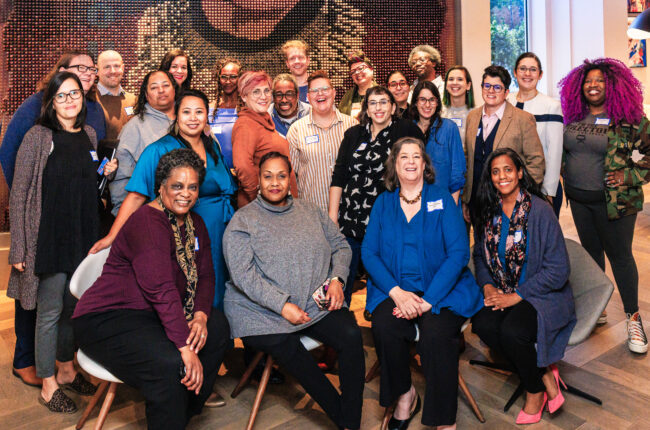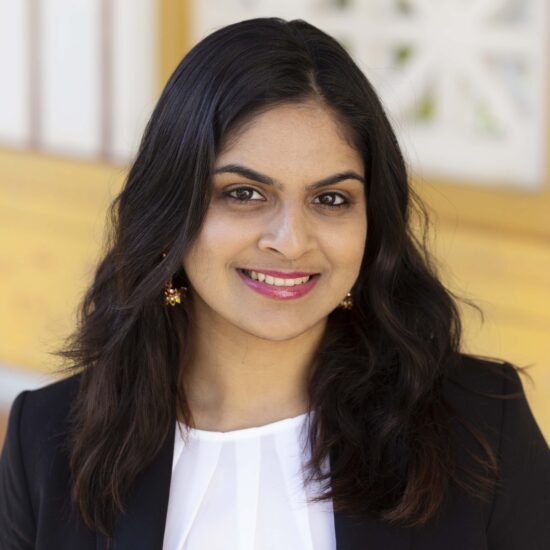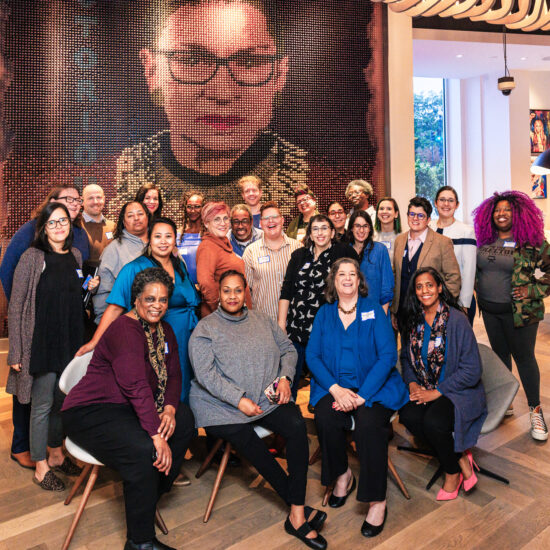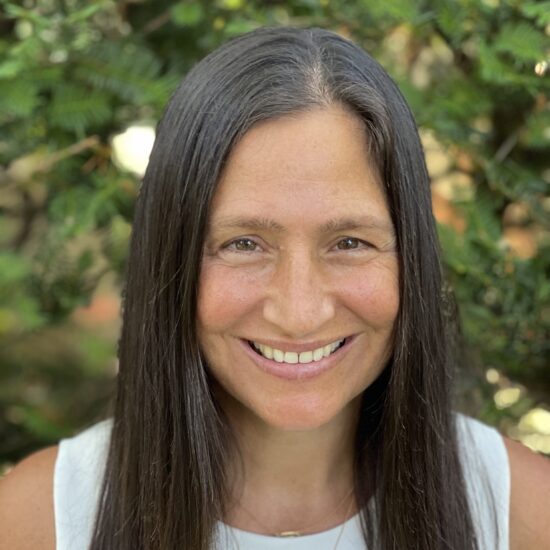Our Religions Support Reproductive Freedom

“The Theology Issue” of Conscience focused a lot on Catholic theology. But don’t just listen to Catholics: People with all sorts of religious backgrounds know that abortion should be legal.
Islam Supports Reproductive Justice
The Islamic tenet of hurma demonstrates sacred bodily integrity — the idea that everyone has inviolable limits or boundaries that are personal and specific to them, as a matter of basic human rights and dignity.
This is at the core of why HEART, along with a majority of Muslims in America, believe that every person has the right and responsibility to make decisions over their own reproductive health — including ending or carrying a pregnancy.
No Muslim is obligated to marry or reproduce. In fact, people who have the ability to get pregnant have, historically, controlled pregnancy prevention and termination on a private basis. Numerous discussions of specific abortifacients in classical Islamic medical manuals indicate the normalcy of abortion in earlier times.
Generally, Islam uplifts free will — even being a Muslim is a choice free of compulsion (Quran 2:256). Further, Muslims believe that only God (not the government nor any other entity) can grant sovereignty to humans (3:26). While we trust that ultimately all lies within God’s power, human agency is simultaneously foundational to the Quranic worldview. Free will is also intertwined with accountability at the personal, social, and religious levels based on the context of any decision a person makes. Muslims can choose abortion upon engaging different Islamic and medical guidance as well as considering our own needs, values, and principles.
God also commands Muslims to “take care of your own souls” as part of asserting each person’s individual accountability to God. We must ultimately be concerned with our responsibility over ourselves rather than the choices of others (Quran 5:105). Even Prophet Muhammad (peace be upon him) was responsible for neither forgiveness nor retribution of others: Throughout the revelation, God reminds him that “to God is the reckoning” (6:107).

"Muslims believe that only God (not the government nor any other entity) can grant sovereignty to humans."
— Aliza Kazmi, MPP
Muslim scholars have a range of approaches to abortion: Some forbid it, some disapprove without forbidding it, and some conditionally or even unconditionally permit it. Much of the discussion centers different interpretations of when ensoulment occurs. However, viewpoints also reflect considerations such as the safety, health, and wellness of the pregnant person. The range of positions suggests flexibility in the way that Muslim societies have historically approached this issue. This diversity is in part due to the inherent fallibility of Islamic legal traditions, which are limited, human interpretations of the will of God, the All-Knower (2:255, 12:76). Muslims have options when it comes to determining which Islamic rules they use as guidance in their personal lives.
All Muslims are responsible to God as maintainers of justice (4:135). We are compelled to understand and transform systemic injustices relating to economic and gender hierarchies — including through considering unique lived experiences related to health and safety. Historically, but especially now, the ability to control one’s own body is a privilege for some unavailable for many. This raises a serious spiritual and ethical concern for all Muslims because part of our faith in the oneness of God is to struggle toward human dignity and equity.
Aliza Kazmi, MPP (she/her) is a co-executive director of HEART. She is a survivor and a Pakistani Shia Muslim American. Born and raised in the San Francisco Bay Area, Aliza has more than a decade of advocacy work experience and holds degrees from U.C. Berkeley and the University of Michigan.
Our Spiritual Futures
Imagine a future when the topic of abortion has ceased to be divisive. Imagine a time when abortion is no longer controversial within religious communities, and it is no longer the hot-button darling of partisan politics. How might we get there? First, we need a public outcry about women’s rights being taken away. The movement for reproductive health, rights, and justice must become the galvanizing issue in the United States. Acceptance of abortion would require religious leaders to experience a call to conscience, and after much dialogue, deep reflection, and prayer, these leaders’ views would reflect the views of the communities they serve. Then, they might join political leaders to draft a reproductive manifesto that becomes the foundation for change. Working together, our leaders can pass dramatic and inclusive laws based on a new framework of a combined religious, spiritual, and secular understanding of living. Our society would prioritize ideas that center the rights of humanity in matters of reproductive health, rights, and justice. It would create a spiritual renaissance. This high spiritual awareness, along with the recognition of the importance of women’s health and autonomy, would lead many religious leaders to reconsider their stance on abortion, and cause miracles to take place.

—
In November 2023, Catholics for Choice gathered these indominable faith leaders in Washington, D.C., to envision a future like the one Rev. Erika Ferguson (back row, fourth from the left) describes. Photo Credit: Jim Heine Photography.
While this may sound far-fetched right now, my spiritual belief and my deep faith allow me to offer this vision of the modern-day miracle. As a minister for nearly 20 years with a focus on reproductive justice and a vow to support and lead a new wave of possibilities for us as religious people, my faith demands that I speak and teach about miracles. We must work for all of us to move from a place of fear to a new land where deep, mature spiritual love lives.
When love is in action, it requires justice, and in my spiritual life, justice looks like bodily autonomy. I hold my work as a minister in the reproductive movement to be sacred. I believe it is entirely possible for each of us to have a high regard for the spiritual nature of freedom. This is my vision and the vow I make for a world that works for everyone.
Rev. Erika Ferguson (she/her) is an interfaith minister who focuses on reproductive health, rights, and justice. In Texas, she leads the Tubman Travel Project, which aids people seeking abortion care outside the state. She was awarded the Oscar Romero Award by Rothko Chapel for her reproductive justice work.
" I hold my work as a minister in the reproductive movement to be sacred."
— Rev. Erika Ferguson
Tzedek Tzedek Tirdof (Justice, Justice You Shall Pursue)
Working as a Planned Parenthood teen advocate was a transformative experience that shaped my decision to become a Reconstructionist rabbi who supports reproductive rights. As I stood side by side with people of all faiths at pro-choice rallies, I learned to listen to people’s stories and experiences. I found that many young people had complex and nuanced views about reproductive rights, shaped by their personal experiences and the experiences of people around them. By listening to their stories, I came to better understand the range of factors that could influence perspectives on reproductive rights, and I was able to help people find their own authentic voices on these issues. This understanding, in turn, inspired me to pursue a career in the rabbinate, where I could use my love of Jewish tradition as a platform to advocate for these issues and promote social justice.
In Reconstructionist Judaism, we believe in the importance of ethical decision-making and the need to engage in ongoing dialogue with others. Today I belong to several interfaith clergy associations that require me to use the listening skills that I learned working as a teen advocate. My role as a spiritual leader involves advocating for the reproductive health and well-being of all.

"My role as a spiritual leader involves advocating for the reproductive health and well-being of all."
— Rabbi Jodie Siff
As a rabbi, I believe in the importance of embracing change. I love that Judaism and the texts that form its foundation challenge me to find my voice in ancient tradition. The principal concept of pikuach nefesh, which holds that preserving human life is of the utmost importance, appears in several places in the Talmud, a rabbinic text of Jewish law and tradition. In cases where a pregnancy threatens the life or health of the mother, Jewish law allows for abortion to save her life. This is based on the principle that the mother’s life takes precedence over that of the fetus. Being able to read the text and interpret it as evolving is essential to my Jewish identity.
The commandment “tzedek tzedek tirdof,” translated as “justice, justice you shall pursue,” compels us to advocate for the health and well-being of all members of our community, including their reproductive health (Deuteronomy 16:20). As a leader in the Jewish community, I feel it is my duty to pass these values on to future generations, l’dor v’dor, so that they too may work to create a more just and equitable world.
Rabbi Jodie Siff (she/her) grew up at the Reconstructionist Synagogue of the North Shore, New York, where she has served as rabbi for 24 years. It is her life’s mission to guide individuals to create meaning through a Jewish lens, within the context of community.

